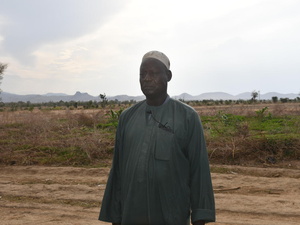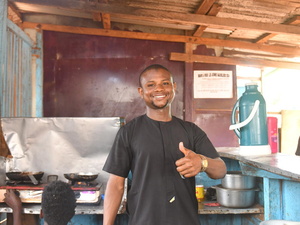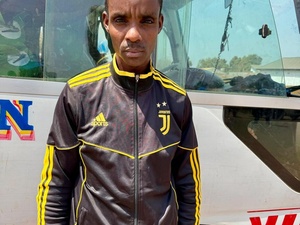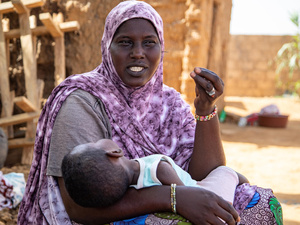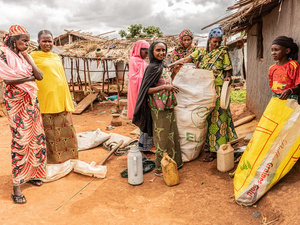Horrors faced in the wake of ongoing violence plague affected Cameroonians
Horrors faced in the wake of ongoing violence plague affected Cameroonians
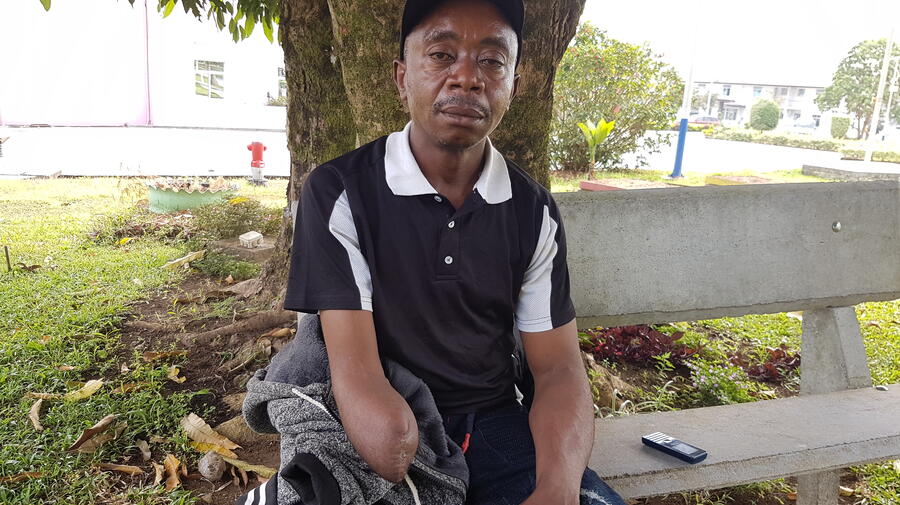
Matome Beckley Mbame lost his right forearm due to the conflict in the troubled South-West region of Cameroon.
Every morning, Matome Beckley Mbame fights a daily battle to ward off the despair that threatens to engulf him. The widower’s only will to keep going is his children.
“But for my five children, I wouldn’t bother getting up at all,” he says.
Matome, 50, is a casualty of the ongoing conflict in Cameroon’s southwest and northwest Anglophone region. His uncle, a member of one of the warring parties, had his forearm amputated as punishment for allegedly being a spy - accusations he strongly denies.
“I protested my innocence,” says Matome adding that his pleas fell on deaf ears, even as he tried to reason with his uncle.
When his fate boiled down to two grim choices - death by gunfire or amputation – he knew what he had to do.
“I saw the machete race towards my arm and screamed when it made contact.”
“The thought of my children becoming orphaned was too much to bear,” he says.
He stretched out his arm and waited for his fate. “I saw the machete race towards my arm and screamed when it made contact,” he adds.
Matome passed out and came to in a hospital bed, where he was sedated as doctors worked hard to save his severed limb, in vain. “At least I am still alive to tell my story and plead for this conflict to end,” he says.
Although Matome’s uncle is in police custody and has been disowned by the entire family, it doesn’t address his immediate concern. “This is what conflict does, it turns people, even family, against one other,” he says.
The crisis in the region erupted last year after protests turned violent, amid calls for secession by the English-speaking regions. So far, over 400 civilians have been killed in escalating attacks between separatist groups and government forces, according to rights groups. The UN Office for the Coordination of Humanitarian Affairs (OCHA), which coordinates the UN response in the country, estimates that some 437,000 people are internally displaced in the troubled region.
Months after the horrific assault, Matome’s life and that of many others affected by the conflict in the region, has changed significantly.
See also: UNHCR deplores forced refugee returns from Cameroon
For Emilia Josa Ngala, keeping herself busy is the only way she can keep the haunting memories of the violence she escaped a few months ago at bay. Her elderly mother, Sara Njema, stares unseeingly into the distance. They fled their village after Emilia’s nephews were brutally murdered.
“We are confused by the turn of events that has left us displaced.”
An ordinary day in September last year turned tragic after Emilia received news that her two nephews had been shot dead. A frantic search led her to an estate where other bodies had been dumped.
“That is where I found my boys,” she says, her face etched with pain. “We are confused by the turn of events that has left us displaced.”
These horrific events forced Emilia and her family to seek refuge in Limbe 1, a seaside city in the South-West region of Cameroon. Since last September, the city has attracted thousands of displaced Cameroonians fleeing the conflict, majority of whom are women and children.
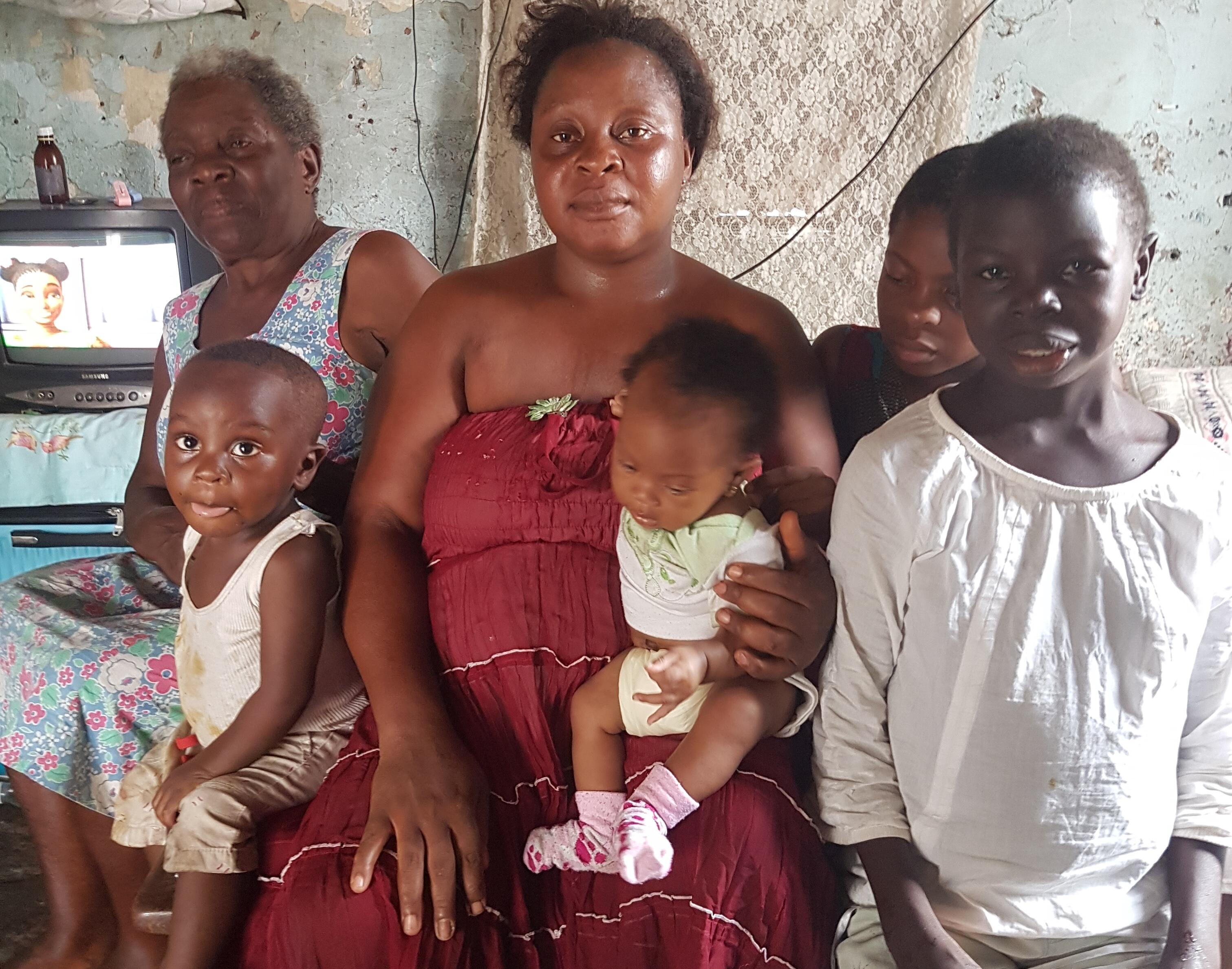
Emilia Joso Ngala sits with her children and her mother Sara Njema Mbondja, 63, with whom she fled violence in Foko Division in Southwest Cameroon
UNHCR, the UN Refugee Agency and other local and international aid agencies have been working closely to meet the rising humanitarian needs of the displaced, including referring people like Matome and Emilia to urgent support services. These include the distribution of non-food items, shelter, dignity kits and protection assistance such as response to Gender-Based Violence (GBV), child protection and psychosocial support.
“A network of protection and humanitarian actors is providing a range of specialist services,” explains Charles Gatoto, the Head of UNHCR’s Field Office in Buea.
Since last November, UNHCR has distributed 6,000 non-food items that include cooking pots, mats, plates and toiletries to 30,000 displaced people. Plans are underway to start distributing 4,000 shelter kits to some 20,000 families in urgent need of shelter.
Gatoto further adds that the establishment of a field office in Buea last September was critical in augmenting the humanitarian response to the displacement crisis. “It was very important to not only participate in the humanitarian response but to prioritize the distribution of non-food items and shelter kits to the displaced.”
For Emilia, this assistance came in handy but supplies are running out and their current situation is dire as she is struggling to make ends meet. She explains that her children stopped going to school months ago and she can’t afford to pay their school fees, the rent or buy more stock for her small shop.
“Our situation is becoming very difficult,” she says. “As the family bread winner, I feel helpless and very stressed.”
The socio-economic impact of the conflict on the region, referred to often as the ‘breadbasket’ of Cameroon, has brought agricultural production and business to a standstill.
Abiabi Gitance, 24, is struggling to cope with this harsh reality. He left behind a life of gainful employment as a construction worker when he fled the violence. He now survives on odd jobs to eke out a living.
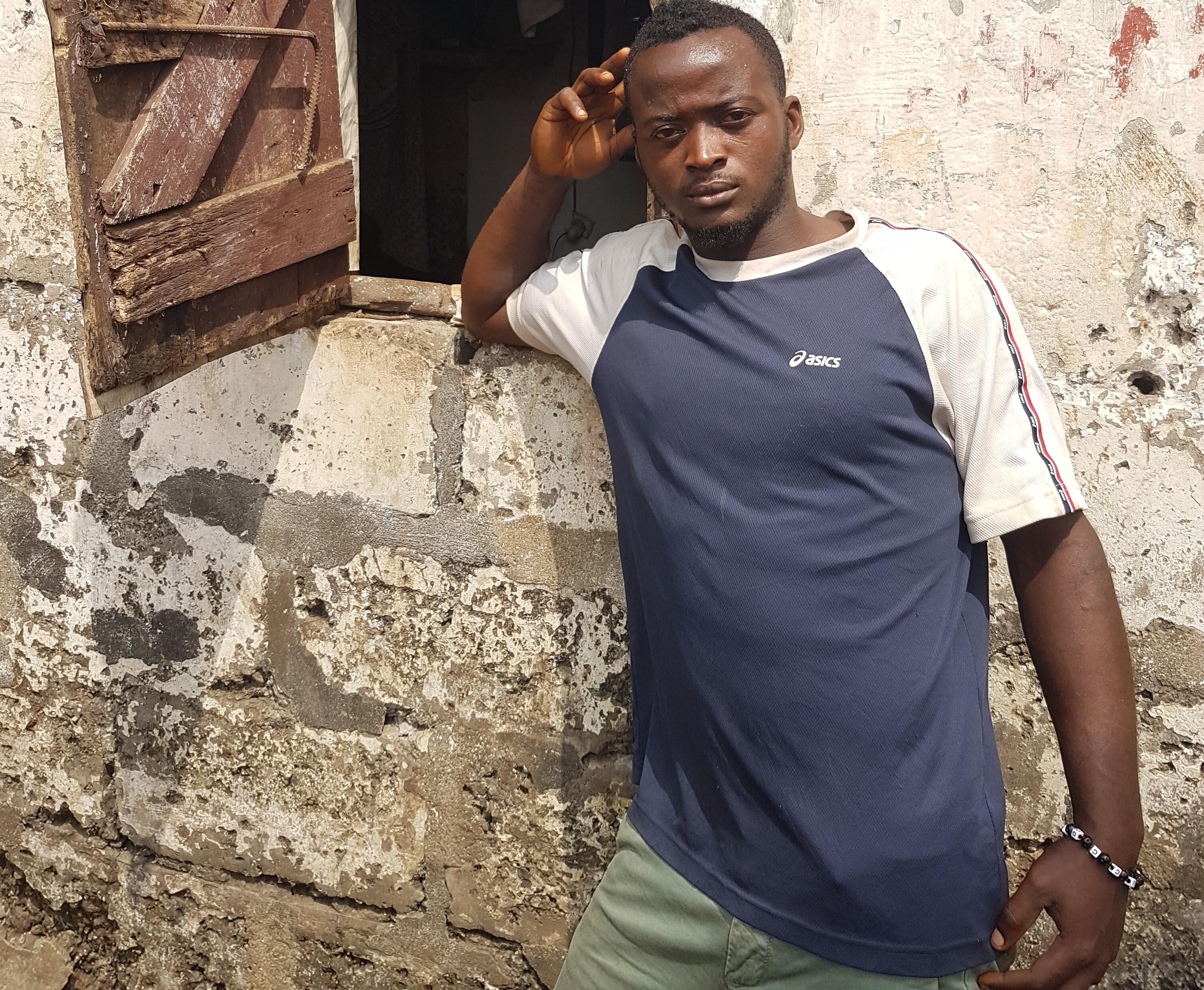
Abiabi Gitance, 24, was displaced by the violence in the South-West region. He hopes for peace so he can return home.
“I fled because I fit the profile on both sides, as either part of the government forces or a member of a non-state armed group,” he explains, adding that he felt his life was in danger as he could have been mistaken for either a perpetrator of violence against the authorities or a potential recruit by armed groups.
“We are engaging the displaced communities...to take advantage of the assistance provided.”
“Either way, I can’t win because I can’t achieve what I want for my life under these circumstances,” he adds.
The frustrations of many displaced Cameroonians as they struggle to cope with life in displacement are growing every day.
“We are engaging the displaced communities on a larger scale, urging them to approach the office and partner agencies to take advantage of the assistance provided,” says UNHCR’s Gatoto.
He adds that information has been distributed to organisations that can identify survivors and victims of torture, to apply for funds and opportunities available for such victims, through the Office of the High Commissioner for Human Rights (OHCHR).
“For the sake of the children and the future, please put the guns down, let’s talk and solve this problem.”
“We will continue assessing the people’s needs to ensure effective delivery of assistance and services,” he adds. “This exercise will benefit both the displaced and local communities.”
Meanwhile, Matome, Emilia and Abiabi can only hope that things will improve so that they can go back to living a dignified, safe life.
“I beg the two sides of this conflict to put their arms down,” says Matome. “For the sake of the children and the future, please put the guns down, let’s talk and solve this problem.”


